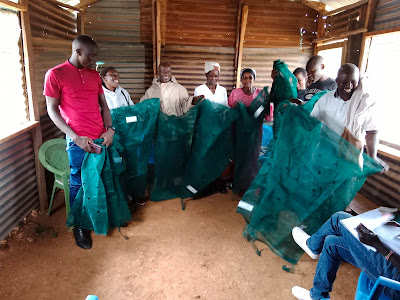Vegetable cultivation provides numerous benefits, particularly for families seeking to become more self-sufficient. Growing veggies provides households with a consistent source of fresh, healthful produce. This is especially important in locations with limited access to fresh food or where food prices fluctuate. A diversified vegetable garden supplies critical vitamins and minerals, boosting overall family health and lowering reliance on store-bought foods. Surplus veggies are sold in local markets, generating additional cash. The income is used to meet other household requirements, and a portion is reinvested in farming resources such as seeds, tools, or sustainable techniques. Families are increase their financial resilience by focusing on high-demand veggies and distinctive types required by the public.
Women Business Hub involves
women-headed households, youth, and people with disabilities in the farming
process by developing their skills in regenerative agriculture while also
enhancing their knowledge of project management. The organization believes that
community-based farming projects will enable families to share expertise,
resources, and support, thereby strengthening the local food system. Farming
and gardening provide therapeutic advantages by allowing people to connect with
nature, ease stress, and develop a sense of accomplishment. This contributes to
a helpful and healthy environment.
Our project's beneficiaries use
sustainable measures such as composting and water conservation, which improve
soil health and make vegetable production more sustainable over time. They are
also employing strategies such as crop rotation, intercropping, and organic
pest control to help maintain a healthy garden ecology.












No comments:
Post a Comment